When I first read Olivia’s post, “Dear Hanbok, I’m Sorry,” I immediately recognized myself. I saw
the part of me that’s always wanted to fit in. Now, maybe “wanting to fit in” is a state that
many children or teenagers can relate to, no matter their race or ethnicity, but there are added
dimensions to this for people of color. I am a child of immigrants from Taiwan. My parents
came to this country barely speaking the language and not knowing anyone. I was never taught
to be ashamed of my heritage, but growing up in a predominantly white neighborhood, I grew
up wanting to assimilate and fit in. As a child of the 70’s and 80’s looking to cultural icons for
clues, I noticed that Barbie dolls were only blonde or brunette. Vogue Magazine covers graced
by Kate Moss or Claudia Schiffer offered up either a skinny gamine or Guess jeans-wearing,
voluptuous blonde, but neither of those beauty ideals included women of color like me. Never
seeing myself reflected in mainstream culture or in positions of power made Asian-American
me want to hide the “Asian” and embrace the “American” in my hyphenated identity.
I’ve recently learned a term: code-switch
code-switching involves adjusting one’s style of speech, appearance, behavior, and expression in
ways that will optimize the comfort of others in exchange for fair treatment, quality service, and
employment opportunities.
Code-switching describes many parts of my experience. When I wanted to bring ham
sandwiches to school instead of my family’s weird-looking and weird-smelling Chinese food:
code switch. When I shunned newly-arrived Asians at my high school so as to not get lumped in
with the FOBs (“fresh of the boat”): code switch. When I went out for ASB and Prom Court and
tennis team instead of Science Olympiad or learning Mandarin: code switch. And that was just
high school! When I worked for big corporations in New York City and Irvine, people of color
holding major executive positions were still hard to find. When I engaged in conversations with
co-workers about weekends in the Hamptons or sailing in Newport Beach, that was still code
switch! I may not have known the term at the time, but I was still hiding my ethnic self to fit
with my vision of mainstream, white America. I thought I buried those insecurities long ago, but
when I read Olivia’s apology to her childhood self that rejected her Korean heritage, a bell
inside me sounded.
As we mark the passing of Asian-American Pacific Islander Heritage Month, I need to celebrate
the wins I have seen in my lifetime. For example, in high school, we never studied world history,
only US History or European History. I learned the names of Columbus’ three boats, and
memorized names of generals and battles of the American Revolution. I studied Greek gods,
members of the Roman senate, what happened when Marie Antoinette told people to eat cake.
But while I was studying about the 200 years of American history, I wasn’t taught anything
about the ten thousand years of my own Chinese heritage, much less the history of other BIPOC
nations and peoples. That World History is at least its own class now in many high schools, is
change, and one that will help other BIPOC teens see that their history is part of the pagaentry
of humanity. So hooray for AAPI Heritage Month, but let’s not confine our celebration of other
cultures to just one month a year.
The rash of horrific racial hate crimes we’ve all seen, including the recent Asian hate crimes
close to home here in Orange County, have inspired many of us who have kept silent to finally
speak up. To confront the racism we’ve experienced, the microaggressions and
macroagressions leveled against us. And even, to confront the self-hatred we leveled against
ourselves. Olivia’s written and spoken words, enriched by the illustrations of talented 12-year
old Sophie Song, are a simple and powerful anthem to certain aspects of the struggle felt by
people of color. Of my own personal struggles. Which is why I thought it was important to bring
Olivia’s words to life.
It’s been a pleasure to work with these three talented young Asian women — Olivia, Sophie, and
my daughter, Hannah — to create this short film, the first piece I’ve had the privilege to
produce! I applaud Olivia for speaking up. I thank her for inspiring me to speak up and engage.
Our hope is that this film inspires further conversation to create a more inclusive world.

Recent Comments